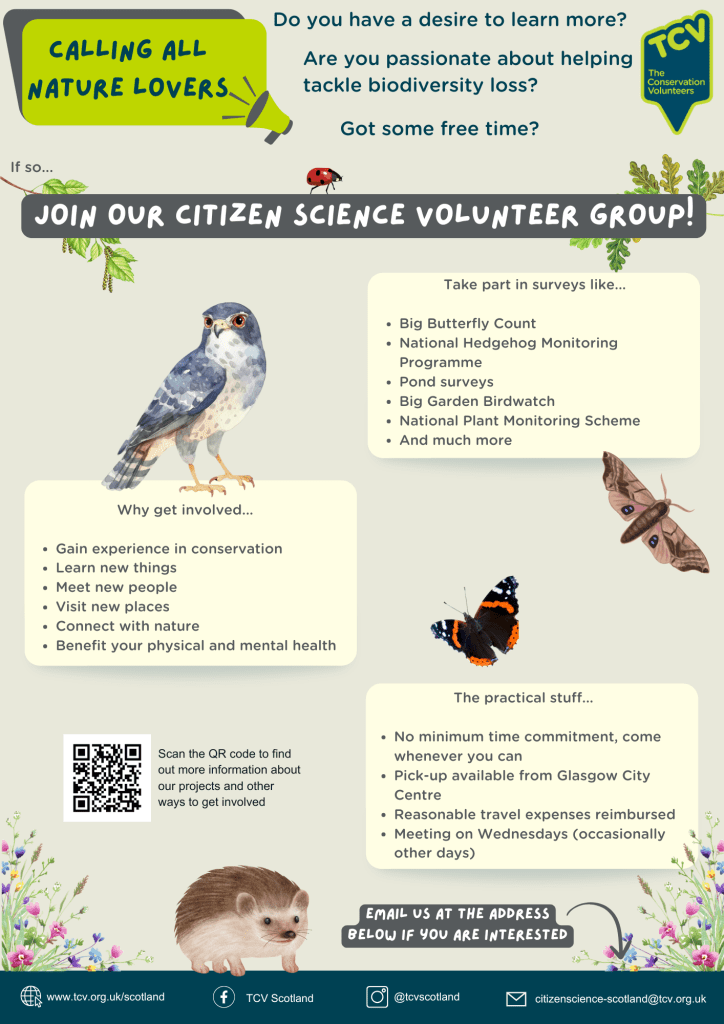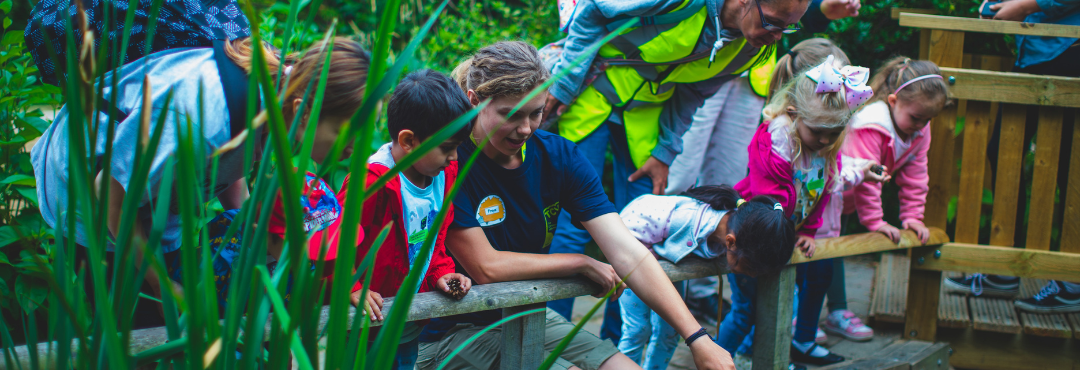Citizen Science is about getting everyone, from experts to amateur biologists, school children or enthusiastic beginners, involved in science.
It’s a great way to get outside, to learn more about the natural world and contribute to important scientific research. Across the world, volunteers gather information vital to protecting and improving our environment, from spotting butterflies to identifying new galaxies, from counting birds to collecting worms!
TCV Scotland can help you discover your ‘inner scientist’, we can help you discover a hidden passion for nature, and we can also help you to protect, enhance and enjoy your local green spaces. Through our long-running ‘Scotland Counts’ Citizen Science project and outdoor education programmes, we offer a broad range of services and support a number of creative, engaging and innovative projects.
So how do I get involved?
- TCV supports Citizen Science in Scotland through the Scotland Counts Project
- Take part in our flagship hedgehog conservation project – HogWatch Scotland
- To find out if the deadwood in your area is dead good, complete our Dead Good Deadwood Survey
- Raising tick awareness – In recent years TCV has been involved in an initiative to increase public awareness of ticks, small spider-like creatures whose bites can transmit infections and cause illnesses such as Lyme disease.

- Join our Citizen Science Volunteer Group – email us at citizenscience-scotland@tcv.org.uk to register your interest
More information and resources here
Why is it important?
Taking part in a Citizen Science survey is one of the most useful ways you can help the environment and expand our scientific knowledge. Information gathered by Citizen Scientists is vital to scientists across the UK in understanding how the environment is doing and where more action is needed, so by getting involved you really can make a difference.
Nearly 90% of all the species and habitat records collected in the UK, come from Citizen Scientists; the data collected by volunteers is essential for understanding our environment and making decisions about how to protect and improve it. Environmental monitoring of the natural world around us by Citizen Scientists, such as rainfall patterns and river flood levels, has supported our knowledge of the cycles of nature for centuries. New media technologies have opened up a host of opportunities for input of vital data from casual and dedicated observers alike.
What are the benefits?
Citizen Science is much more than just science. Getting involved is fun, helps develop skills and connection with others. It improves health and wellbeing and helps us all feel more connected to the environment around us. It also enables communities to:
- Be more active outdoors
- Bring people of different ages together
- Work together around a central activity, locally focussed projects
- Develop and share local skills and knowledge
- Work together to tackle environmental or social justice issues
- Gather knowledge about the environment to inform community based environmental projects
- Gather knowledge about the environment to support scientific research and environmental management decisions
Check out our Instagram and the ‘Citizen Science’ highlight to see what we get up to
We also post on our Facebook

